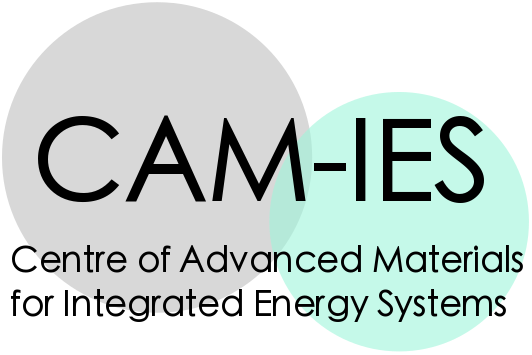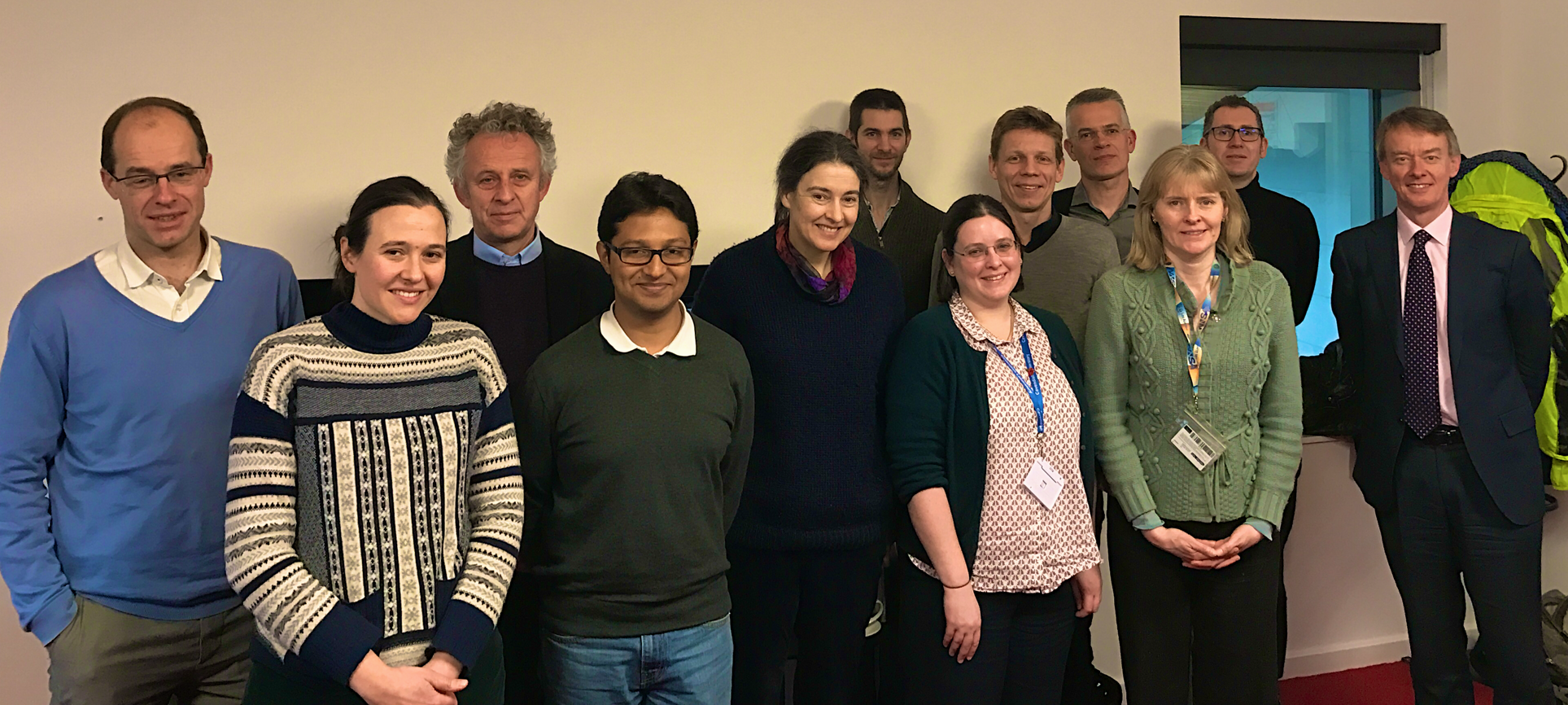
The Centre of Advanced Materials for Integrated Energy Systems (CAM-IES) is a £2.1 million EPSRC networking Centre in partnership between four UK universities: Cambridge, Newcastle, Queen Mary and University College London.
CAM-IES focuses on the development of advanced materials for energy conversion and energy storage based on:
- solid-state, higher voltage and flow batteries
- solid-oxide fuel cells (SOFCs)
- CO2 gas separation membranes
- hybrid thin film photovoltaics (PVs)
- large-area thermoelectrics
for future renewable and clean energy systems. We target off-grid/grid-tied applications, large-/grid-scale centralised energy generation and storage and energy solutions for mobile internet communication technologies.

Objectives
- To create a UK-based community of researchers focused on materials for integrated energy systems and build a forum for knowledge exchange and scientific collaboration between academia and industry.
- To facilitate access to and train users from the wider community on unique state-of-the-art experimental facilities for energy materials characterization and deposition, currently being set-up in Cambridge as part of the Sir Henry Royce Institute, to accelerate new concepts to commercial reality.
- The development of strong modes of collaborative working and networking to identify synergies between the other EPSRC Centres of Advanced Materials for Energy Generation and Transmission at the Universities of Edinburgh and St Andrews, together with our University partners, industry and stakeholder groups.
- To organise a series of high profile symposia and workshops engaging the wider stakeholder group and disseminate research findings to the community.
- To help identify new research directions and requirements for materials in specific applications, working closely with industry, via three flexible funding calls, with topics including emerging new research areas, industry driven/partnered projects, and materials integration research.
- The establishment of effective methods for evaluating new materials discoveries for industrial scale-up.
Research Programmes:
The research programmes will develop advanced materials for energy storage, specifically solid-state batteries, coatings for high voltage electrode battery materials and flow batteries, and also energy conversion, specifically solid-oxide fuel cells, CO2 gas separation membranes, hybrid thin film photovoltaics and large-area thermoelectrics.
The Centre will exploit currently unexplored synergies between different energy fields, and combine fundamental energy materials research aimed at making significant scientific breakthroughs, including the discovery of new materials, understanding and controlling interfaces, novel integrated device concepts and achieving enhanced device performances.
The research programmes are focused around six work packages aimed at addressing key scientific challenges:
Work Package 1: Solid-solid inorganic interfaces (Lead:Judith Driscoll)
Work Package 2: Gas-solid interfaces (Lead:Ian Metcalfe)
Work Package 3: Liquid-solid interfaces (Lead:Clare Grey)
Work Package 4: Organic-inorganic interfaces (Lead:Hugo Bronstein)
Work Package 5: Organic heterointerfaces (Lead:Henning Sirringhaus)
Work Package 6: From new materials to integrated energy systems (Lead:Richard Friend)
Academic Leads
CAM-IES leadership team:
- Prof Clare Grey (Director and PI, University of Cambridge)
- Prof Henning Sirringhaus (Co Director, University of Cambridge)
- Prof Ian Metcalfe (Co Director, Newcastle University)
CAM-IES Co-Investigators:
- Prof Judith Driscoll (University of Cambridge)
- Dr. Sohini Kar-Narayan (University of Cambridge)
- Dr Sian Dutton (University of Cambridge)
- Prof Sir Richard Friend (University of Cambridge)
- Dr Stephan Hofmann (University of Cambridge)
- Prof William Gillin (Queen Mary University London)
- Dr Christian Nielsen (Queen Mary University London)
- Dr Hugo Bronstein (University College London)
- Prof Franco Cacialli (University College London)
CAM-IES project partners:
- American Institute of Physics
- Applied Materials Inc
- ARM Ltd
- Cambridge Display Technology Ltd (CDT)
- Deregallera Ltd
- Eight19 Ltd
- Johnson Matthey
- National Physical Laboratory NPL
- Sasol Technology Research Laboratory
- Siemens plc
- Shell
- Tata Steel UK
Strategic advice to the Centre will be provided by a broad and highly experienced international advisory board with members from industry and academia.
For further information please contact the Principal Investigator Prof Clare Grey at cpg27@cam.ac.uk or energy@admin.cam.ac.uk.

